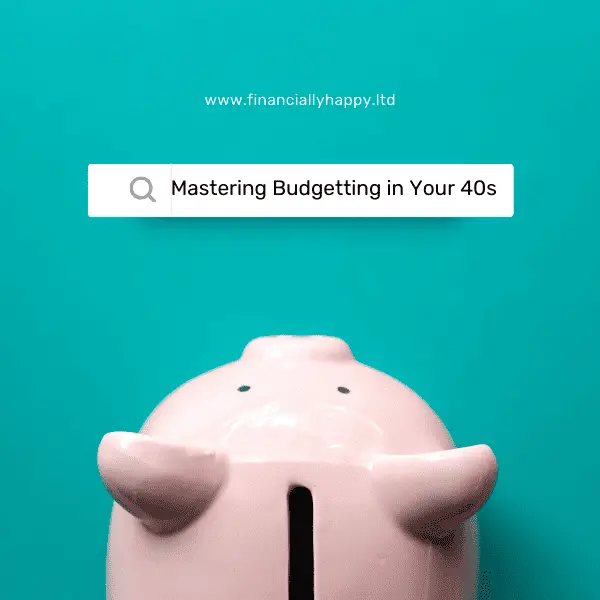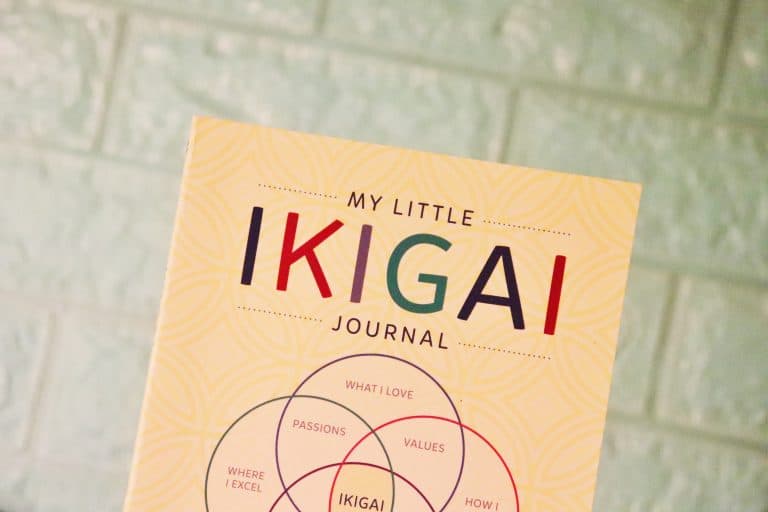Understanding Financial Happiness: What It Is and What It Isn’t 🌟
Welcome to exploring a concept that’s often misunderstood yet profoundly impactful—Financial Happiness.
In a world where the pursuit of wealth often overshadows the quest for well-being, it’s time to set the record straight.
This blog aims to demystify what Financial Happiness truly means and, perhaps more importantly, what it doesn’t.
Prepare to challenge conventional wisdom, shatter money myths, and embark on a journey towards a life where your finances serve as a tool for joy, not a source of stress. 🌟

What Is Financial Happiness?
The Essence of Financial Happiness
Financial happiness is a multi-faceted concept that goes beyond mere wealth accumulation. It’s about achieving a state of well-being that empowers you to live your life to the fullest. This involves a holistic approach that considers not just your financial standing, but also your emotional well-being and life goals.
Emotional Well-Being 🌈
Financial happiness is intrinsically linked to your emotional health. When you’re financially happy, you experience less stress and anxiety related to money matters. This emotional stability allows you to focus on other important aspects of life, such as relationships, personal growth, and even your physical health.
Life Goals 🎯
Your financial situation should enable you to achieve your life goals, be it travelling the world, starting a family, or launching your own business. Financial happiness means having the financial capability to pursue these dreams without the constant worry of financial ruin.
A Holistic Approach
Financial happiness isn’t just about having a lot of money; it’s about having a healthy relationship with your finances. It’s a holistic approach that considers not just your bank balance, but also your emotional well-being and life goals.
Mindfulness
Being financially happy means being mindful of your spending, saving, and investing habits. It’s about making intentional choices that align with your values and long-term objectives.
Flexibility
Financial happiness provides you the flexibility to live life on your terms. Whether it’s the freedom to change careers, travel, or spend quality time with loved ones, financial happiness gives you options.
Sustainability
It’s not about get-rich-quick schemes or short-term gains. Financial happiness is sustainable and focuses on long-term growth and stability. It involves planning for the future while enjoying the present.
Fulfillment
Financial happiness is deeply tied to personal fulfillment. It allows you to invest in experiences, relationships, and goals that bring joy and meaning to your life.
What Financial Happiness Is Not
Not Just Wealth
Contrary to popular belief, financial happiness is not synonymous with being wealthy. You can have a high net worth but still be financially unhappy if your relationship with money is fraught with stress or misaligned with your values.
Not a Destination
Financial happiness is not a final destination but a continuous journey. Your financial goals and circumstances and your definition of financial happiness will change.
Not One-Size-Fits-All
What brings financial happiness to one person may not work for another. It’s not a one-size-fits-all concept but a highly individualized state that depends on personal goals, values, and circumstances.
Not Just About Sacrifice
While budgeting and saving are important, financial happiness is not about constant sacrifice and deprivation. It’s about finding a balance that allows you to enjoy life today while planning for tomorrow.
Not Free of Challenges
Achieving financial happiness doesn’t mean you’ll never face financial challenges or setbacks. It means that you’ll be better equipped to handle those challenges without them derailing your overall sense of well-being.
In summary, financial happiness is a nuanced and individualized state that goes beyond mere numbers. It’s about creating a fulfilling, sustainable, and flexible life that aligns with your values and goals. It’s a journey, not a destination, and it’s attainable for anyone willing to take intentional steps toward it. 🌟

Is money important for happiness?
The relationship between money and happiness is nuanced, often misconstrued in a society that frequently equates wealth with well-being.
While it’s true that a certain level of financial stability can alleviate stress and provide a sense of security, money alone is not a guaranteed ticket to happiness.
Studies have shown that the incremental happiness gained from additional income diminishes once basic needs are met.
In essence, money can buy comfort and choices but can’t purchase love, purpose, or the deep satisfaction of fulfilling work or meaningful relationships.
However, dismissing money as unimportant would be an oversimplification.
Financial stability can serve as a foundation upon which other pillars of happiness—such as health, relationships, and personal growth—can be built.
In this context, money becomes a tool, not the end goal. It’s not about how much you have, but how you use what you have to facilitate a life rich in experiences and emotional well-being.

Ways to maintain financial happiness
Maintaining financial happiness isn’t just a one-off task; it’s a continuous journey that requires conscious effort and strategic planning.
Financial Mindfulness is one of the most effective ways to sustain this state of wellbeing. Being aware of your spending habits, knowing where each penny goes, and understanding the emotional triggers that lead to unnecessary expenses can offer a sense of control and satisfaction.
Budgeting is another cornerstone. A well-structured budget helps you manage your finances and provides a roadmap to achieve your financial goals. It’s not about restricting your spending; it’s about making informed choices that align with your priorities.
Investing is the silent engine that propels financial happiness. Whether it’s low-cost index funds or other investment vehicles, the aim is to make your money work for you.
But investing isn’t a set-and-forget activity. Regular reviews and adjustments are essential to ensure that your portfolio aligns with your changing life circumstances and market conditions.
Emergency Funds offer a safety net that can significantly reduce financial stress. Knowing you have a cushion to fall back on in times of need can bring immense peace of mind.
Lastly, Financial Education is crucial. The more you know, the better decisions you’ll make. Whether it’s reading books, taking courses, or consulting with a financial coach, continuous learning is key to maintaining financial happiness.
By incorporating these elements into your life, you’re aiming for financial stability and a holistic sense of financial happiness.
FAQ Money and Happiness
How do you achieve financial happiness?
Achieving financial happiness involves a blend of mindful spending, strategic saving, wise investing, and emotional well-being.
It starts with setting clear financial goals aligned with your life’s priorities.
A well-crafted budget helps you manage your income and expenses, while an emergency fund provides a safety net for unforeseen circumstances.
Smart investing grows your wealth, and regular financial check-ins ensure you’re on track.
Emotional resilience, often nurtured through financial education and coaching, helps you make sound decisions and avoid market pitfalls.
In essence, financial happiness is the result of a balanced and proactive approach to money management.
Do we need $75 000 a year to be happy?
The notion that you need $75,000 a year to be happy is based on a study by Princeton University researchers, which found that emotional well-being rises with income up to that point, but not beyond it.
However, this figure isn’t a one-size-fits-all answer. Happiness is influenced by various factors including location, personal circumstances, and individual needs.
While a certain income level can alleviate financial stress and provide for basic needs, true happiness often comes from non-material factors like relationships, purpose, and personal growth.
Therefore, while $75,000 might be a benchmark for some, it’s not a universal requirement for happiness.
What salary is happiest?
The “happiest” salary varies from person to person and depends on factors like location, lifestyle, and personal circumstances.
A commonly cited figure is $75,000 per year, based on a Princeton University study, which suggests that emotional well-being rises with income up to that point but plateaus thereafter.
However, this is not a universal standard and individual happiness can’t be solely determined by income.
How much money do you need to be financially free?
The amount needed for financial freedom varies widely based on your lifestyle, expenses, and investment returns.
A common rule of thumb is to have 25 to 30 times your annual expenses saved or invested.
This is based on the 4% withdrawal rule, which suggests you can withdraw 4% of your portfolio each year without running out of money.
However, individual circumstances can greatly affect this estimate.
How can I be financially happy?
To be financially happy, focus on building a strong financial foundation through budgeting, saving, and investing.
Align your financial goals with your life’s purpose and values.
Practice financial mindfulness to make informed decisions and cultivate emotional resilience to navigate market uncertainties.
It’s not just about amassing wealth, but using money as a tool to live a fulfilling life.
Are people with money happier?
Studies suggest that people with money are generally happier than those without, but only up to a point.
Beyond a certain income level, the increase in happiness becomes marginal.
Money can alleviate stress and provide opportunities, but it’s not a guaranteed ticket to long-term happiness.
How much money do you need for financial freedom?
The amount needed for financial freedom varies greatly depending on your lifestyle, expenses, and goals.
A common guideline is to have 25 to 30 times your annual expenses saved or invested.
This lets you live off the interest and returns without depleting your principal amount.
If you’ve made it this far, congratulations! You’re already taking steps towards a healthier financial future. But maybe you’re feeling a bit overwhelmed. Maybe the of budgeting, saving, and investing still makes you break out in a cold sweat. Don’t worry, you’re not alone, and help is available.
At Financially Happy Money Coaching, I understand money isn’t just about numbers. It’s about emotions, behaviours, and life choices. That’s why we’re here to help you take the stress out of money and build wealth that aligns with your values and lifestyle.
Whether you’re just starting out on your financial journey or you’re looking to take your finances to the next level, we’re here to guide you every step of the way. I’ll help you understand your financial behaviours, set realistic goals, and create a personalized plan to achieve those goals.
So, why wait? Start your journey towards financial happiness today. Remember, the best time to start was yesterday. The second best time is now.
Click here to schedule your consultation and let’s make your money work for you, not vice versa. 💪💰
Remember, financial freedom isn’t a destination; it’s a journey. And every journey is easier when you have a guide. So, let’s embark on this journey together and create a financially happy future. 🚀💸
📚 Financial Freedom Resources
- The Ultimate Guide To Building Your Savings to $100,000! 📘 is a transformative book that equips readers with principles, strategies, and the mindset 🧠 needed to reach a $100,000 savings goal 💰. It’s a journey towards financial freedom 🚀, challenging beliefs 🤔, embracing new habits 🔄, and overcoming obstacles 💪.
- How to Manage Your Finances: Your Guide to Financial Freedom 📘 is a comprehensive resource packed with practical advice on budgeting 💰, investing 📈, reducing debt 💳, and building wealth 💎. It’s an essential guide for anyone, novice or experienced, aiming to take control of their financial future and achieve financial independence 🚀.
Remember, self-study is a powerful tool for life and financial transformation. Happy reading! 🎉









